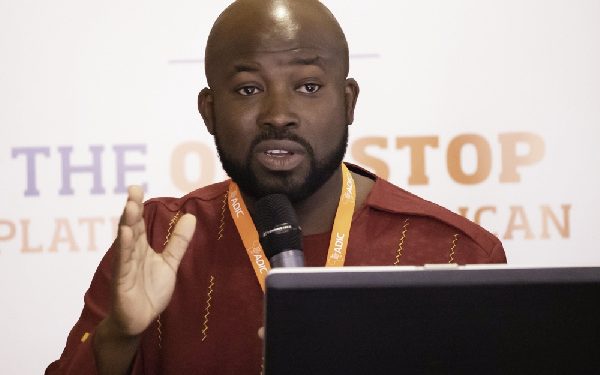Businessman and Convener of the One Ghana Movement, Senyo Hosi, has attributed the ongoing illegal small-scale mining, commonly referred to as galamsey, to the government’s inaction.
Hosi asserted that if the government genuinely intended to end galamsey, it could do so, emphasizing that a lack of political will is hindering progress.
“This is a failure on the part of the government,” he stated during an appearance on TV3’s Key Points on October 12. “If the government wants this to stop, it will stop.”

Similarly, South Dayi MP Rockson Nelson Dafeamekpor urged the Minerals Commission to take decisive action against environmental degradation caused by illegal mining.
He stressed that it is the commission’s responsibility, as the legally mandated body, to collaborate with the police and military to eradicate illegal miners from water bodies and forests.
“It is your duty to ensure that the operations of unlicensed individuals are halted,” he stated.
Dafeamekpor further criticized the Minerals Commission and the Environmental Protection Agency (EPA) for failing to utilize their legal powers to protect the environment. He proposed that the Minerals Commission and EPA should acquire helicopters to monitor galamsey areas effectively.
In a previous statement, the CEO of the Minerals Commission, Martin Kwaku Ayisi, revealed that small-scale mining occurs in 13 regions of Ghana and emphasized that such operations are legally restricted to Ghanaians. He noted that any involvement of foreigners in small-scale mining is illegal.
Ayisi explained the historical context of illegal small-scale mining, detailing how legal frameworks have evolved since the introduction of the Small Scale Gold Law in 1989.
He emphasized that the ongoing challenge of illegal mining stems from the lack of designated areas for lawful small-scale miners to operate.
He also suggested that cooperation with large-scale mining companies could facilitate the allocation of licensed areas for small-scale miners. Until these issues are addressed, Ayisi warned that the problem of galamsey would persist.
























































![[FREE FREE MONEY] Predict and Win a Guaranteed GH¢200 From Us EVERY WEEK](https://wordpress.ghanatalksradio.com/wp-content/uploads/2022/02/Predict-and-Win-Final-09-03-2021-218x150.jpg)
![[Predict & Win – 8th/Oct.] WIN A Guaranteed ¢200 From Us This Week](https://wordpress.ghanatalksradio.com/wp-content/uploads/2021/10/maxresdefault-16-218x150.jpg)
![[Predict & Win – 2nd] WIN A Guaranteed ¢200 From Us This Week](https://wordpress.ghanatalksradio.com/wp-content/uploads/2021/09/maxresdefault-50-218x150.jpg)
![[Predict & Win – 25th] WIN A Guaranteed ¢200 From Us This Week](https://wordpress.ghanatalksradio.com/wp-content/uploads/2021/09/maxresdefault-36-218x150.jpg)
![[Predict & Win – 18th] WIN A Guaranteed ¢200 From Us This Week](https://wordpress.ghanatalksradio.com/wp-content/uploads/2021/09/maxresdefault-23-218x150.jpg)







![[National cathedral] See full list of churches that have contributed since 2018](https://wordpress.ghanatalksradio.com/wp-content/uploads/2020/09/Ghana-National-Cathedral-GhanaTalksRadio-100x70.jpg)



